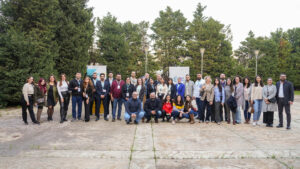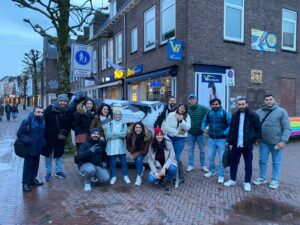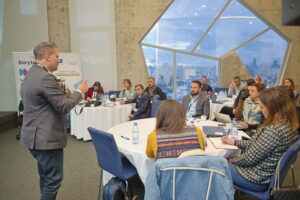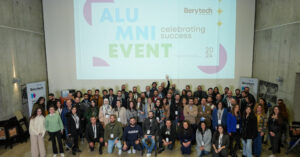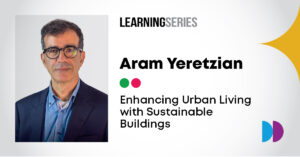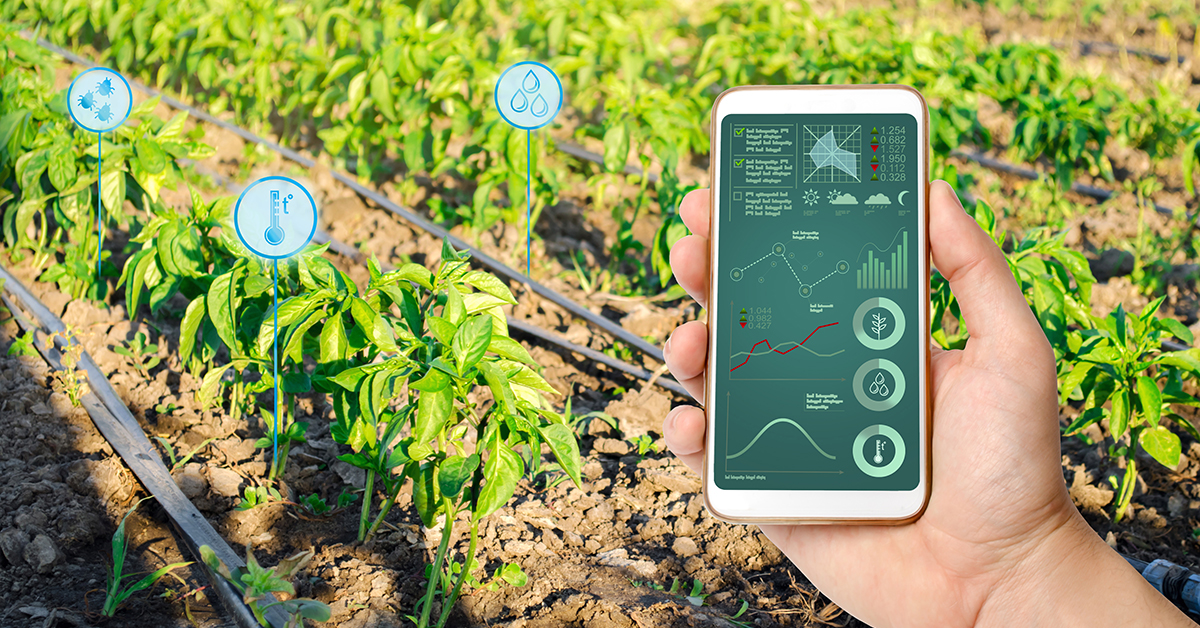 Khaled Abbas is the co-founder and CEO of Smart Land, a startup that has developed a smart irrigation and fertigation system that limits the consumption of water and fuel in agriculture. Unlike traditional methods, the system works on renewable energy and uses a mobile application to ultimately improve the quality and quantity of the land’s yields.
Khaled Abbas is the co-founder and CEO of Smart Land, a startup that has developed a smart irrigation and fertigation system that limits the consumption of water and fuel in agriculture. Unlike traditional methods, the system works on renewable energy and uses a mobile application to ultimately improve the quality and quantity of the land’s yields.
We met up with Khaled to talk about his journey in Berytech’s Agrytech Accelerator Program with his co-founder Saad, that started with just an idea. Throughout the program, the duo built their prototype, tested it and launched their business.
Merging Two Passions
Khaled Abbas was born and raised in his father’s land. Season after season, he helped his father plant, saw and sell his crops, growing passionately close to the land himself. Khaled’s initial choice to study agriculture engineering was thwarted by the absence of an agriculture school in the Beqaa. “My father wanted me to stay close to him. He’s a farmer who works 600 dunum (acres) of land alone. Majoring in agriculture meant that I would have to move to Beirut and my father would be left with no help, so I decided to major in electrical engineering and stay by his side.”
Today, Khaled does not regret his decision. On the contrary, he was able to merge his interest in electronics and experience in agriculture to establish his own agri-tech business.
Joining the Accelerator
“I was first introduced to Berytech in my senior year of university. In 2017, I participated in an Agrytech Hackathon and enjoyed working on finding solutions to the many challenges in agriculture; challenges that I am very familiar with, that all need solutions.
After the Hackathon, I did not work to take my idea further. I was in my senior year, working with my father, and overwhelmed. However, three years later I had already graduated and was frustrated by the lack of opportunities in the country. The call for applications to the Agrytech Accelerator Program caught my eye. I had followed the Berytech news through their newsletter since my participation in the Hackathon and found myself compelled to apply.
That same night, I was hanging out with Saad, my cousin. I told him about the program and suggested the call for applications to him. We went through all the possible challenges that required solutions we could think of, worked hard and applied with an initial auto-irrigation idea. You can imagine our excitement when we got accepted into the program in October 2019.” Saad joined Khaled as co-founder and together they worked on the first prototype of Smart Land.
Pivoting
The team’s original idea was an auto-irrigation system that uses land sensors to operate an automatic irrigation system. “During the first phase of the Agrytech Accelerator Program, we went through the design sprint, analyzed our idea, looked at how we can improve, develop it and add to it. The Berytech team was there to guide us in developing the solution in the right direction.
We started with irrigation and moved to smart irrigation controlled by a mobile app so that the farmer can control the irrigation system while remaining connected to the land. The agri-food specialists in the program advised us to pivot into fertigation – injecting fertilizers into the irrigation system.
This pushed us towards developing a solution for fertigation, a machine connected to a mobile app, that allows the farmer to determine the exact quantity of fertilizers, specify the area to spray and control the zone in which it is used.
During Phase II of the Accelerator, we sold one system and in Phase III we sold another. We also worked on developing a solution for greenhouses to be used during winter.
At the moment, we are contacting several leads to introduce them to the solution. We’re benefiting from the fact that spring is the season where they start to build their irrigation system and we want to be able to convert them just before. Fortunately, we’re seeing growing interest in our solution from both the farmers and the NGOs who are working in the agriculture sector.”
Challenges in Launching
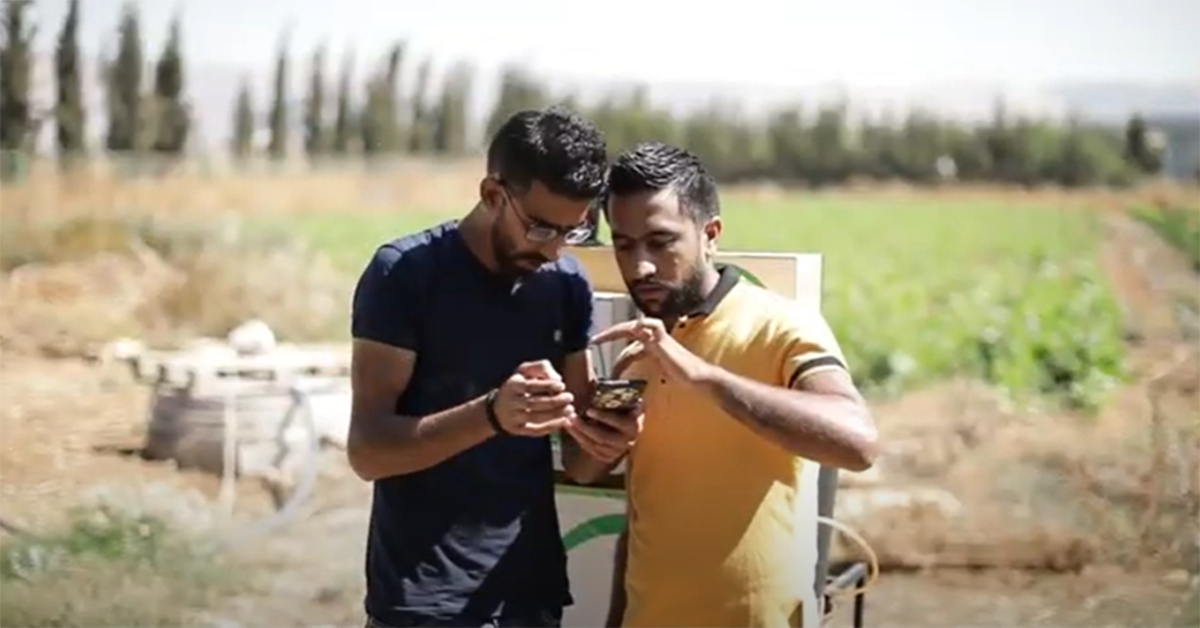
Khaled’s initial challenge was working with an older generation of farmers who prefer to maintain their conventional methods. Familiar with the culture, Khaled knows his way around it.
“We are focusing our outreach on farmers who could be progressive enough to use our system, the first adopters. These are the people who are willing and able to invest in their land and they are relatively few. With the systems we’ve already installed, we’re able to show immediate results in improved quality and quantity of production.
Smaller traditional farmers are extremely hesitant to use technology, but when they see big farmers achieving results, they want to follow their example and they become more willing to make the move.
While it could have been an obvious step to test the installation of the Smart Land solution in his father’s land, Khaled preferred to install it for a client first. “In Phase II of the program, we only had one working system and we had to make the most of what we had to grow. So, we preferred working with a client that could prove results and that we could later use as an example to sell more units to other clients.
When I pitch to farmers telling them I installed the unit for a big farmer and got great results, they immediately ask me why I did not install it in my father’s land and I always answer: If I had shown you the same results from my father’s land would you have believed me?”
Another major challenge Khaled faces in growing his client list is caused by the depreciation of the Lebanese Lira versus the US Dollar and all the uncertainty that this entails in making any kind of business decision. The Smart Land solution, despite being an investment for farmers, has proven that it will be able to save them precious dollars by reducing their consumption of imported fertilizers, fuel and labor. “The grants that Berytech has dispersed through the Agrytech Program have given us a push in the worst economic time in Lebanon. Our clients and the market in all industries are looking to reduce their expenditures, especially in foreign currency. Our solution offers just that.”
Experience in the Agrytech Accelerator
“I don’t see myself as an employee. Without Berytech, I would have been another engineer working in a factory probably. Berytech has allowed me to start a company and become its co-founder and CEO, providing job opportunities for three full-timers and 10 extras.
Without the support of the Berytech team through the Agrytech Program, we would not have been able to launch a business in Lebanon in a year like 2020.”
Joelle Atallah, Investment Specialist at Berytech worked with the team in their growth journey, “The team behind Smart Land was remarkable when it comes to their commitment to the program, their willingness to learn and continuously advance, and their level of perseverance. They were the epitomes of startup founders who believed in the potential of their idea, had a vision, and were ready for anything to execute it. Their mindset and commitment made them progress on all fronts and allowed them to get several clients since Phase 2 of the Program. They are now fully operational with several projects/clients under their belt. At this rate, I can definitely see them growing their client base in Lebanon in the coming months and expanding in other countries eventually.
Smart Land is mainly targeting traditional farmers who still struggle with the costs of traditional farming. Within that context, Smart Land’s offer is a true innovation and will participate in modernizing the agricultural sector in several rural areas of Lebanon and other foreign countries. The Middle East and Gulf regions still rely on traditional agriculture and traditional practices. An offer like that of Smart Land will drive change because of the nature of the offer itself (tech-based, automated, smart) and the profile of the founders, who by being farmers themselves, can relate to their customers’ pain points, challenges, and needs.”
Agri-entrepreneurship to Save Lebanon
“Lebanon uses very little of the land that could be farmed, and it could definitely have self-sufficiency in fresh produce. It could also increase its agricultural exports by meeting compliance standards, especially for EU countries,” specifies Khaled.
“Our solution will improve the quality of the yields and farmers can get better lab results for their products, simplifying their export route. The Smart Land solution also reduces the excess usage of water which makes the product more prone to mold and less bearing to travel.”
The team is planning to add many new features to their solution that would empower the local farmer. Their goal is to create a community that gathers farmers on their platform, to create a solid network that fosters the exchange of knowledge and resources. Farmers in the community will be able to get better deals on agricultural products to reduce their costs. “We’ll also have the data to understand what the farmers are producing, to be able to match supply to demand while giving them access to local and international markets.”
The Agrytech Program
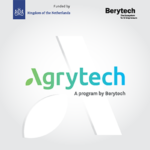 Berytech designed and developed the Agrytech program to make sure Lebanon has the most competitive companies that are sourcing, solving, growing and transforming food, as well as feeding the world from Lebanon. The Agrytech Accelerator Program is under the ACT Smart Innovation Hub, a new out-of-the-box approach by Berytech, co-funded by the Kingdom of The Netherlands, aims at strengthening business advancement and job creation in the Agri-food and Cleantech sectors in Lebanon. Berytech supports innovations across these sectors by offering startups the resources, knowledge, support, and funding worth around $100K, necessary to scale their ideas and grow them to penetrate international markets. Learn more.
Berytech designed and developed the Agrytech program to make sure Lebanon has the most competitive companies that are sourcing, solving, growing and transforming food, as well as feeding the world from Lebanon. The Agrytech Accelerator Program is under the ACT Smart Innovation Hub, a new out-of-the-box approach by Berytech, co-funded by the Kingdom of The Netherlands, aims at strengthening business advancement and job creation in the Agri-food and Cleantech sectors in Lebanon. Berytech supports innovations across these sectors by offering startups the resources, knowledge, support, and funding worth around $100K, necessary to scale their ideas and grow them to penetrate international markets. Learn more.




